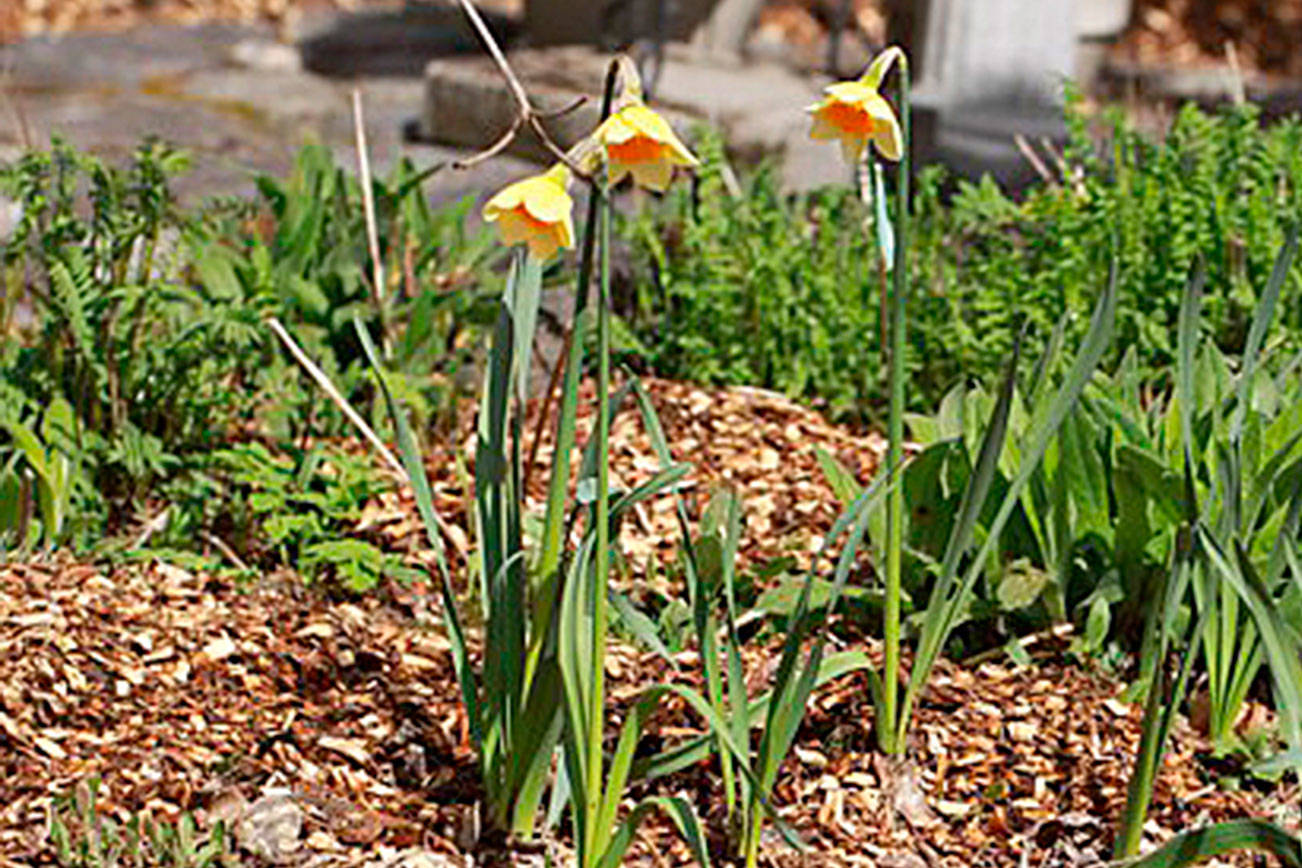Working together, we can reduce noxious weeds in our county and home gardens. How? A big first step was taken by the Clallam County Commissioners when they adopted the 2017 Clallam County Integrated Weed Management Plan.
At the end of 2017, data showed positive results in the mitigation of weeds in targeted areas of our county. Commissioners then voted to continue with their plan for 2018.
Lessons from this first year of data collection can benefit home gardeners. Nobody likes weeds. Weeds are invasive, they overrun native plants, home gardens, lawns, and commercial farms in our community.
What to do? Several strategies have shown results: prevention, monitoring and maintenance of targeted areas, planting appropriate native plants and good garden practices.
First, prevention can go a long way to eliminate weeds. Whenever invasive or noxious weeds emerge, act. Our county plan advocates for action when the weed is first emerging.
Once it is established, it is more difficult to eliminate. Covering areas between plants with layers of mulch can slow the establishment of new weeds. Work to promote the health of crops or ornamental plants. Healthy plants compete better with weeds for water, nutrients and space.
Second, monitor and maintain targeted areas. Become familiar with the life cycle of weeds. Don’t wait until wild carrot or knapweed are in bloom. Mowing weeds after they have set seed will promote the next growth cycle. For some plants, simply pulling or digging them up when the ground is soft, and plants are young will do the trick. Later, targeted, limited use of herbicides can be applied if caution is taken to select the correct agent and apply it as directed. Care must be taken to avoid herbicide “drift” from compromising edible fruits and vegetables.
Finally, planting appropriate native plants and plants well-adapted to our climate will discourage invasive weeds from getting established. Select different varieties of plants that are appropriate for the micro-climates in your garden. Use of ground-covering plants retains moisture and keeps invasive plants at bay.
Take a walk around the edges of your yard, along roads and fields. See if new weeds are encroaching from outside carriers. Make sure that any compost, gravel or other road materials are from sources that have followed the County weed management protocols before bringing these materials onto your property.
Any weeds that are pulled should not be placed in home compost bins because the runners or seeds may start growing again and should be disposed with trash.
Weeds may never be eliminated, but they can be managed. To be effective it is important to employ the range of strategies outlined above. Each strategy works together with the others. Since weeds do not know boundaries or property lines, we must work with our neighbors to be good stewards.
For more information about invasive weeds and management in our county and the 2018 Clallam County Weed Management Plan, check out the website: www.clallam.net/weed/iwmp.html. This plan outlines targeted sites along Clallam County roads that are being treated. Lists of noxious weeds and locations are identified on the maps.
Beverly Hetrick is a Washington State University-certified, Clallam County Master Gardener.
Get involved
The Thursday “Brown Bag” series will be from noon-1 p.m., June 28, at the Clallam County Courthousein Port Angeles. Veteran Master Gardener Muriel Nesbitt presents “Nematodes: The Good and the Evil.” The presentation is open to the public and free of charge, but donations to help support the program are appreciated.
The Woodcock Demonstration Garden in Sequim will be hosting their monthly Garden Walk also on Thursday, June 28, beginning at 10 a.m. Topics such as planting, pruning, composting and harvesting will be covered, along with the sharing of other timely gardening advice. This will be held at the same time as the weekly One-on-One Garden Advice.
One-on-one Garden Advice at Woodcock Demonstration Garden happens twice a week. The Master Gardeners will be there every Thursday from 10 a.m.-noon and Saturdays from 9:30 a.m.-12:30 p.m. The Plant Clinic will be open at the same time on Saturdays.



